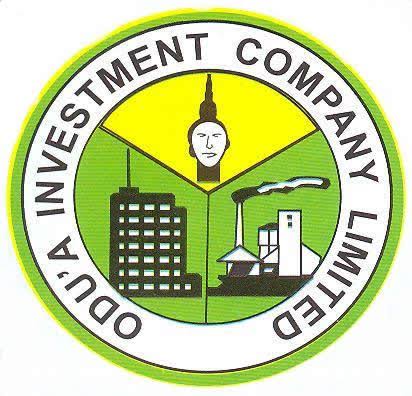Guided by a vision of economic transformation and regional empowerment, Odua Investment Company Limited stands as a symbol of resilience and innovation in Nigeria’s business landscape. Established under the visionary leadership of Chief Obafemi Awolowo, the conglomerate has evolved from its foundational roots in real estate into a diversified powerhouse spanning hospitality, agriculture, insurance, ICT, and oil and gas.
Under the leadership of Otunba Bimbo Ashiru, Odua Investment Company continues to strengthen its position as a driver of sustainable development across the Southwest. Ashiru’s leadership philosophy emphasizes consolidation, transparency, and smart investment — values that have redefined the company’s trajectory while ensuring it remains financially strong and strategically liquid.
In this exclusive interview, Ashiru provides deep insights into Odua’s operations, its forward-looking strategies, and the company’s broader contribution to Nigeria’s economic landscape. He also highlights ongoing philanthropic initiatives through the Odua Foundation and reflects on the significance of the company’s recent Aa– credit rating from Agusto & Co.
What are the current priorities and goals for Odua Investment Company?
Our top priority is to strengthen Odua’s foundation by consolidating assets and identifying viable investment opportunities. We’re focused on creating jobs, expanding partnerships, and ensuring sustainable returns for our stakeholders. Today, Odua stands as a financially robust and liquid institution, well-positioned for continued growth.
How does Odua Investment Company define long-term focus, and what sectors does it prioritize?
At Odua, long-term focus means building value that lasts. Our evolution reflects this principle — from our early ventures in real estate and construction to our current diversified portfolio that spans hospitality, insurance, agriculture, ICT, and oil and gas.
Our history remains deeply connected to iconic projects such as Cocoa House and Western House, which laid the groundwork for our expansion into sectors like cement manufacturing through Lafarge. Following government restructuring during the military era, Odua transitioned into a holding company — a move that enabled us to pursue a broader investment vision through subsidiaries like Wemabod.
What have been some of Odua’s key achievements and milestones in recent years?
Over the last five years, we’ve achieved the goals of our initial 2025 strategic plan and are now implementing a renewed strategy with a strong focus on agriculture and asset optimization.
We currently manage over 30,000 hectares of farmland across the Southwest, cultivating cocoa, maize, and cassava. Our N10 billion partnership deal with cocoa exporters underscores this agricultural push. In addition, we are revitalizing dormant assets such as the Premier Hotel and Epe Plywood to enhance profitability and stimulate local economies.
What guiding principles shape Odua’s investment decisions?
Our investment philosophy is built on discipline, accountability, and profitability. We invest only in ventures with strong growth potential and measurable returns. Each opportunity undergoes a rigorous evaluation process based on predefined criteria. This framework has guided our successful investments in companies like Iwosan, Aradel, and other high-performing enterprises.
How does Odua manage risk when evaluating investment opportunities?
We apply a strategic balance between risk and reward. Each potential investment is subjected to thorough risk assessment, ensuring that projected returns align with potential exposure. Our portfolio is intentionally diversified across multiple risk categories — from low to medium-risk ventures — allowing us to pursue innovation while maintaining financial stability and growth.
How does Odua manage its diverse investment portfolio effectively?
Our portfolio management process is structured, data-driven, and transparent. Subsidiaries are regularly evaluated through meetings with managing directors, where performance is measured using a balanced scorecard framework. This ensures alignment with the company’s strategic objectives and facilitates informed decision-making.
We also uphold strong corporate governance principles, ensuring every investment is thoroughly reviewed and approved to guarantee both financial and social impact.
How has Odua contributed to the Southwest’s economic development, and how do you measure success?
Odua’s impact is visible across the Southwest through job creation, industrial revival, and community development. Our investments have fostered regional growth, inspired confidence, and served as a model for other regions exploring collaborative economic development.
The success of our agricultural projects, real estate initiatives, and hospitality ventures reflects our long-standing commitment to sustainable progress. As other states and regions look to replicate our model, Odua’s legacy continues to expand beyond the Southwest — reinforcing its position as a cornerstone of Nigeria’s economic advancement.

